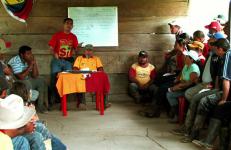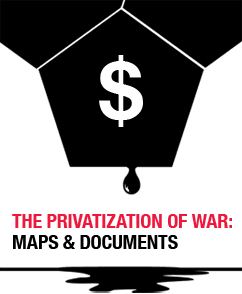Interviews
Infos rund um das Sportereignis
Fußball-WM im WUK
Die Fußball-Weltmeisterschaft findet heuer in Brasilien statt – und wird auch im Innenhof des WUK mittels public viewing gezeigt. In dieser Sendung beschäftigen sich WUK Radio mit den politischen und sozialen Konnotationen dieses Großereignisses.
Sendungsgestaltung: Jürgen Plank
Mit: Dario Azzellini
You are missing some Flash content that should appear here! Perhaps your browser cannot display it, or maybe it did not initialize correctly.
Nem képviselnek minket! – interjú Dario Azzellinivel és Marina Sitrinnel
A Helyzet Műhely és a PERG meghívására Marina Sitrin (MS) New York-ban dolgozó író, aktivista és Dario Azzellini (DA) Berlinben és Caracasban dolgozó művész és dokumentumfilm-rendező a globális mozgalmak helyzetéről és lehetséges jövőjéről tartottak előadást a múlt hónapban. A Gólyában az általuk Caracasban forgatott Comuna Under Construction (2010) című dokumentumfilm vetítése után Meszmann Tibor (MT) beszélgetett velük.
MT: Aktivisták vagytok és akadémikusok. Nemcsak kutatjátok, részt is vesztek társadalmi mozgalmakban. Hogyan látjátok a saját szerepeteket?
Interview with Dario Azzellini and Marina Sitrin by Anna Belladelli
In September 2011, activists occupied Zuccotti Park in Manhattan, initiating a new wave of struggle against capitalism and unprecedented recession. The impact of the Occupy movement has been noticeable also outside the USA, affecting forms of protests, actions, and language.
The grassroots of Venezuela
The mainstream media view has it that left-leaning populists are keeping democracy in a stranglehold. Seen from the grassroots in Venezuela, that view is very different. We interview Dario Azzellini, an assistant professor, activist who spends a lot of time in Venezuela, and a filmmaker.
You are missing some Flash content that should appear here! Perhaps your browser cannot display it, or maybe it did not initialize correctly.
Öffentlichkeit Reloaded
Der Raum des Politischen, das heißt der öffentlichen Debatte, der Partizipation und des Mitentscheidens wurde sukzessive verengt. Warum und welche möglichen Auswege es gibt versuchen wir anhand der bisherigen Sendungen zum Thema #Öffentlicher Raum #Öffentlichkeit real und virtuell nachzuzeichnen.
Mit Dario Azzellini u.a.
Moderation: Daniela Schopf und Stefan Greinöcker
You are missing some Flash content that should appear here! Perhaps your browser cannot display it, or maybe it did not initialize correctly.
Hablamos con Darío Azzellini, una de las voces que alertan al mundo sobre este fenómeno
Soldados élite de los ejércitos modernos son extranjeros
Desde el final de la guerra fría, las características de los conflictos en el mundo cambiaron. Cada vez los ejércitos de los países más poderosos del planeta, enfrentan los choques internacionales, con soldados extranjeros o comúnmente llamados mercenarios, altamente capacitados en combate y manejo de nuevas tecnologías en sus países de origen.
Inszenierte Öffentlichkeit – Gegenöffentlichkeit
Colin Crouch befindet in seiner These der Postdemokratie, dass Politik von Expert_innen und Wirtschaftseliten gemacht wird und Bürger_innen zur passiven Teilhabe degradiert sind. Dario Azzellini, Assistent am Institut für Soziologie der JKU, befindet dass es den Zustand einer partizipativen Demokratie so nie gegeben hat, sondern dass liberale
Demokratien gerade auf Elitenpolitik angelegt sind. Den Begriff politische Öffentlichkeit versucht er an der Privatisierung öffentlichen Raums zu konkretisieren.
You are missing some Flash content that should appear here! Perhaps your browser cannot display it, or maybe it did not initialize correctly.
Imagine a world without bosses
Imagine a world without bosses. This week we discuss examples of workers who run their own workplaces through workers control. Interviews with Alexis Adarfio, from the Workers’ University in Ciudad Guyana, Venezuela; Immanuel Ness, City University of New York, Brooklyn College; and Dario Azzelini, Johannes Kepler University in Austria.
- See more at: http://www.3cr.org.au/sticktogether/podcast/stick-together-24072013#stha...
You are missing some Flash content that should appear here! Perhaps your browser cannot display it, or maybe it did not initialize correctly.
Direct Democracy Under Construction: A Conversation with Dario Azzellini

In this episode of Forms of Life, host Nato Thompson speaks with documentary filmmaker, writer and political scientist Dario Azzellini about community organizing and social movements.
An Interview with Dario Azzellini
Workers Control and/or Worker Cooperatives?

GEO: Dario, your co-edited book, Ours to Master and To Own, Workers Control from the Commune to the Present, presents a rich variety of worker control initiatives. These have taken place not only in Europe, but in Algeria, Argentina, Brazil, Canada, India, Indonesia, the USA, Venezuela, Yugoslavia, and other countries. Can you clarify for us what these examples have in common, and what you see as their importance?
- « erste Seite
- ‹ vorherige Seite
- …
- 2
- 3
- 4
- 5
- 6
- 7
- 8
- 9
- 10
- …
- nächste Seite ›
- letzte Seite »























